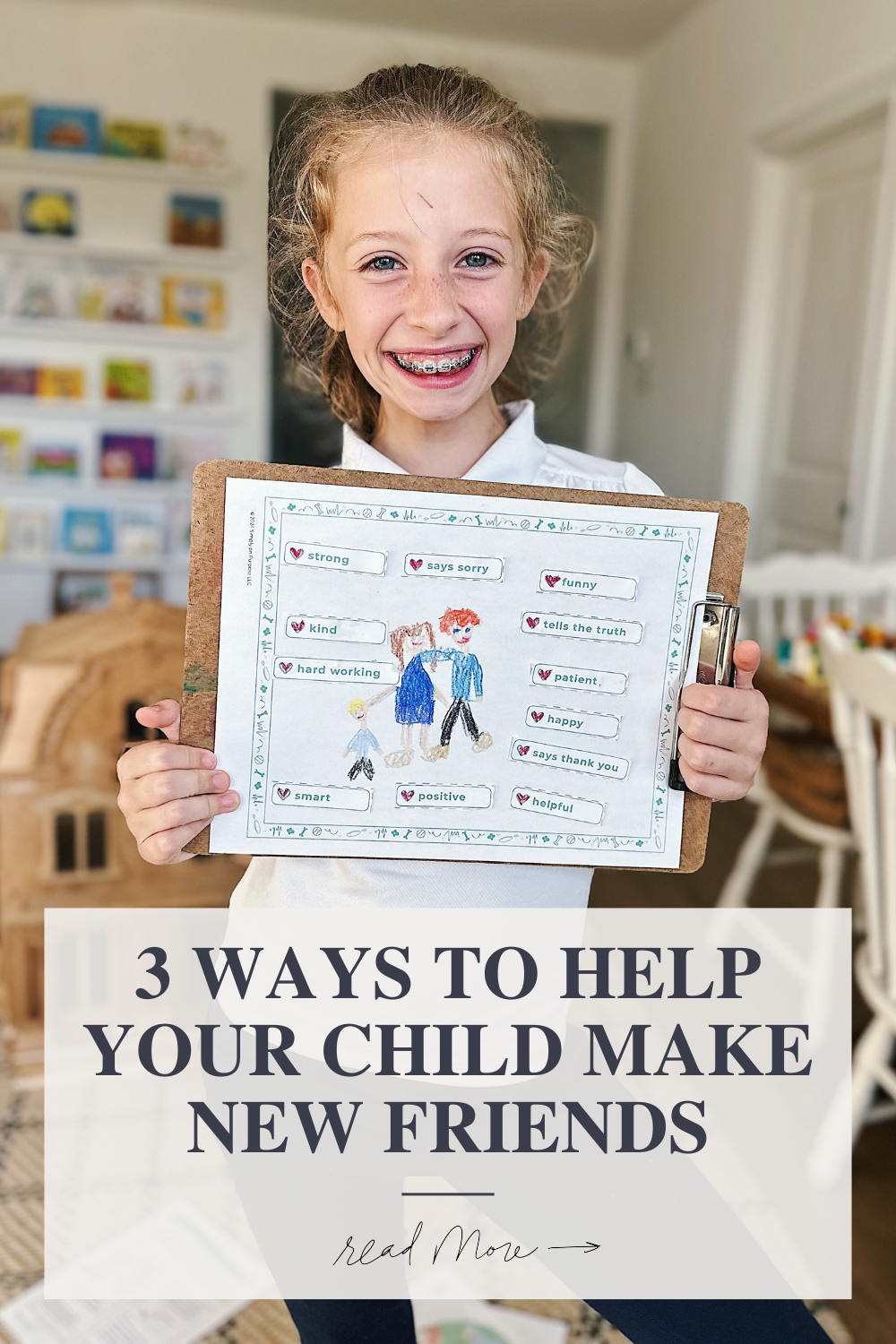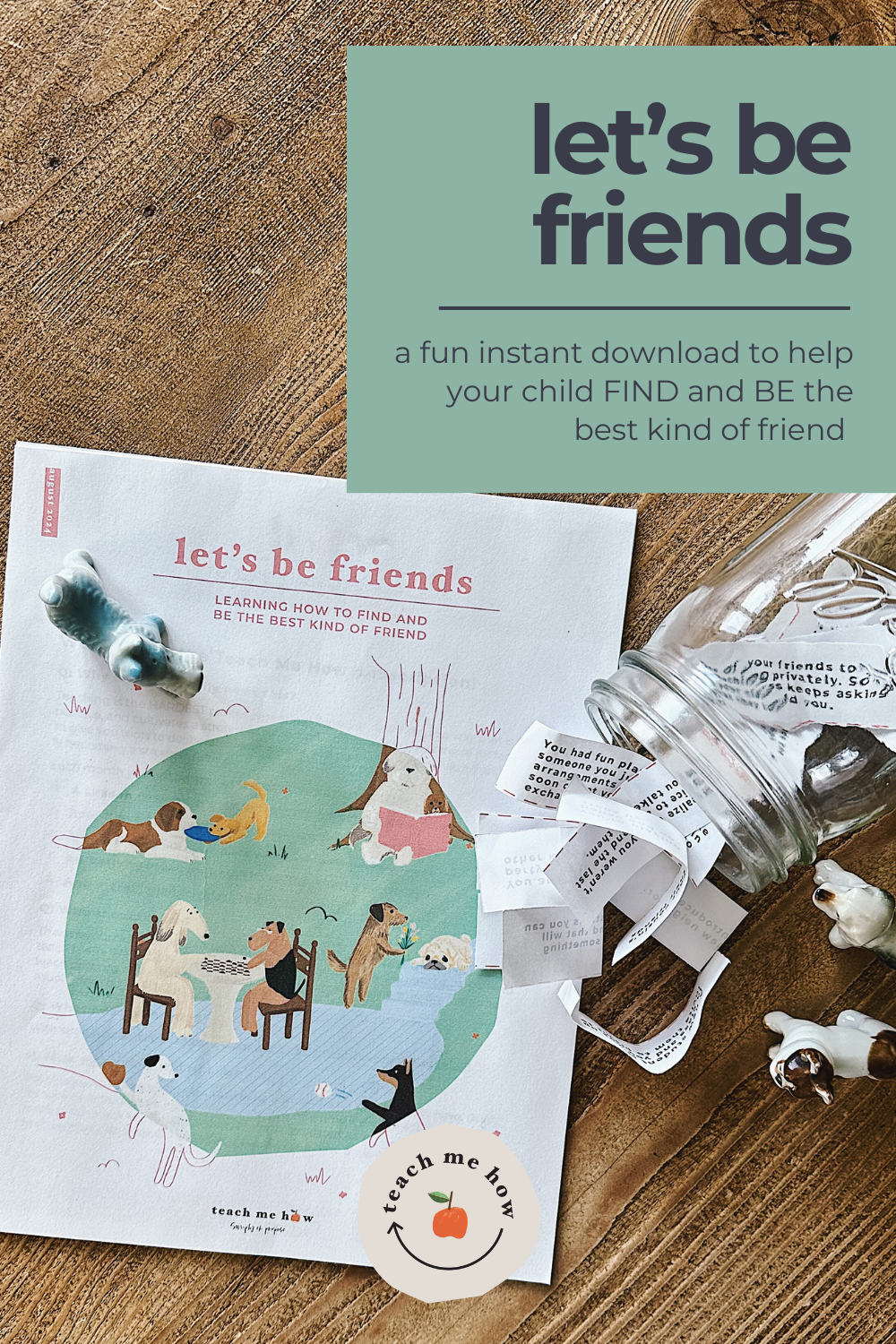Good friends really matter! We all want our kids to feel connected and supported in and outside the home. So, let’s make sure they feel empowered to surround themselves with good friends and learn how to BE a good friend! Here are three tips:

1. Help Them Build Confidence in Themselves
Kids who feel good about themselves are more likely to reach out and make a new friend. You can boost your child’s confidence by looking for the good that they do and reminding them of their qualities that make them a great friend. Whether they’re funny, kind, or thoughtful, every child has something special to offer.
Help them understand that it’s normal to feel nervous about making friends, but remind them that everyone is looking for connection. They are not alone in this process! Encourage them to take small steps–like saying hello or asking someone at the park to play–and to know that each try will build their confidence.
2. Practice Social Skills at Home: “Let’s Be Friends” Resource
Friendships often start with small conversations and a bit of courage. If your child is shy or unsure how to approach new people, practicing body language and simple social skills at home can go a long way. What’s the best way to do this? With role plays!
The August Teach Me How resource titled, “Let’s Be Friends: Learning How to Find and Be the Best Kind of Friend,” is full of role plays to give your child lots of practice. Pretend you’re a new classmate or a neighbor at the park, and let your child practice introducing themselves, asking questions, or inviting someone to play. These small interactions are the building blocks of bigger friendships, and practicing them at home will make your child more comfortable to carry out these situations in real social situations.
This resource also has an activity and discussion questions about what qualities you should develop in yourself in order to be a good friend. It will get your child thinking about what true friendship means, and give them ideas of how small actions can lead to new friendships.
3. Support Their Efforts to Be a Friend
Once your child is working on making friends, support their efforts. This could be you helping them navigate small conflicts, or offering your home up to having friends come over often. Help them make things happen! Friendships take time and effort, and your support can help them stay patient and positive.
If you’d like more resources on promoting friendship inside and outside your home, you’ll like these resources:
- Let’s Build a Friendship: Becoming Better Buddies at Home – May Teach Me How Resource
- Encouraging Friendships Between Siblings – Print Shop Resource

